This article is tailored for you, the CEO of an Early-Stage Tech Startup, who is navigating the complex relationship between monetary policy and equity markets. In the rapidly evolving financial landscape, it's crucial to understand how changes in monetary policy can affect your ability to raise funds and maintain the value of your company's equity. With a clear understanding of these dynamics, you can make more informed decisions, anticipate market movements, and position your startup for success.
Understanding Monetary Policy and Its Effects on Equity Markets
Monetary policy, set by central banks like the Federal Reserve or the European Central Bank (ECB), involves managing the economy by altering interest rates and controlling the money supply. These policies can profoundly influence equity markets, affecting everything from your startup's stock valuation to investor behavior.
Tightening of Monetary Policy
When central banks sense an overheating economy or rising inflation, they may implement a tightening of monetary policy, often by raising interest rates. A study by the ECB revealed that a tightening of 50 basis points typically reduces returns by about 3%. This contraction can escalate your borrowing costs and dampen investor enthusiasm, potentially lowering your startup's valuation.
Moreover, as interest rates climb, the rate at which firms' future cash flows are capitalized increases, often leading to a decline in stock prices. According to research from the University of Glasgow, tighter monetary policy results in higher discount rates for future earnings, effectively pressing down on equity values.
Quantitative Easing (QE) and Its Market Impact
In contrast, during economic slowdowns, central banks may implement Quantitative Easing (QE), a process of buying securities to inject liquidity into the economy. This influx of capital tends to push investors towards relatively riskier investments in search of stronger returns. As a result, there's typically an increase in equity prices, as documented by Investopedia, making it a potentially favorable time for fundraising.
The Dual-Edged Sword of Monetary Policy on Equity Markets
The influence of monetary policy on the equity market is not always straightforward. A working paper from the National Bureau of Economic Research (NBER) suggests that after an initial decline, stock prices may increase persistently in response to an exogenous tightening of monetary policy. This counterintuitive response implies that while the short-term effects of policy shifts can be challenging, they may also set the stage for a stronger, more resilient market over time.
Additionally, the element of surprise in QE announcements can play a significant role in market reactions. A Loyola University Chicago study found that the surprise component of QE has an economically large and statistically significant impact on asset prices. This volatility underscores the importance of staying informed and being ready to adapt your fundraising strategy to unexpected policy shifts.
Strategic Fundraising in the Face of Monetary Policy Shifts
Understanding the signals that anticipate changes in monetary policy can be a strategic advantage. For instance, a Federal Reserve study notes a 5% rise (or fall) in the S&P 500 index increases (or decreases) the likelihood of an accommodative monetary policy action. Monitoring such indices can provide valuable clues about when to accelerate fundraising activities or when to brace for tighter financial conditions.
As you prepare to raise capital, consider the broader economic environment shaped by these policies. Fundraising during periods of monetary easing can be advantageous, as lower interest rates and a hunger for higher returns may make investors more receptive to your pitch. Conversely, during periods of tightening, crafting a compelling narrative around your startup's resilience and long-term potential becomes even more critical.
In the next sections, we will delve into practical tips to help you navigate equity market volatility and strategies to maintain investor confidence during monetary policy shifts. Stay tuned for actionable insights that will empower you to steer your startup through the complexities of fundraising in varying monetary conditions.
Tips for Navigating Equity Market Volatility
As the CEO of a tech startup, your ability to secure funding can be significantly impacted by the volatile swings of the equity markets in response to monetary policy changes. Here are several strategies to help you navigate these fluctuations:
- Monitor Economic Indicators and Central Bank Announcements: Keeping a close eye on economic indicators and central bank statements can provide early warnings of policy shifts. This vigilance is key to anticipating market reactions and adjusting your fundraising strategy accordingly.
- Diversify Investment Strategies: By diversifying your investment approaches, you can spread risk across different asset classes. This can help cushion your startup's finances against the impact of policy-driven market volatility.
- Engage with Financial Advisors: Collaborating with professional advisors can offer you personalized strategies that align with your startup's goals and the current economic climate.
- Utilize Hedging Techniques: Hedging can protect your assets from market swings. Consider options like futures contracts or swaps to manage risk exposure.
- Solidify Investor Relationships: Establishing and maintaining strong relationships with investors during different monetary conditions can be crucial. Clear communication about how your startup plans to navigate changing economic landscapes can reinforce investor confidence.
Table: Impact of Monetary Policy Changes on Equity Market Indicators
The following table illustrates how various monetary policy actions, such as rate hikes or the implementation of QE, correlate with key equity market indicators like stock price indices and volatility measures.
| Monetary Policy Action | Impact on Stock Price Indices | Impact on Market Volatility |
|---|---|---|
| Rate Hike (50 basis points) | 3% decrease in returns | Increased volatility |
| Quantitative Easing (Surprise Announcement) | Significant increase in asset prices | Decreased volatility (short-term) |
(Source: ECB Working Paper, Loyola University Chicago Publication)
Bullet Points: Key Takeaways for Tech Startup CEOs
When faced with the challenge of raising funds during times of monetary policy changes, keep these key points in mind:
- Understanding Economic Context: Grasping the broader economic environment is essential for effective fundraising.
- Investor Confidence: Implement strategies to sustain and boost investor confidence during monetary policy shifts.
- Capitalizing on Conditions: Take advantage of periods of accommodative monetary policy to raise capital.
- Preparing for Downturns: Be proactive in preparing for potential downturns induced by policy changes.
In conclusion, as we've explored the complex relationship between monetary policy and equity markets, it's clear that these forces can have a profound impact on your fundraising efforts. Being aware of the implications of central bank actions, whether it's a tightening that might reduce returns or a QE policy that could boost equity prices, is crucial for navigating these waters successfully.
Remember, effective fundraising is not just about having a groundbreaking idea or a stellar team; it's also about understanding and adapting to the financial currents that shape investor behavior. By staying informed, diversifying your strategies, and maintaining open lines of communication with your investors, you can steer your startup through the ebbs and flows of the market.
The journey of an early-stage tech startup CEO is fraught with challenges, but with the right knowledge and tools at your disposal, you can turn monetary policy changes from a potential hurdle into an opportunity for growth and success.

